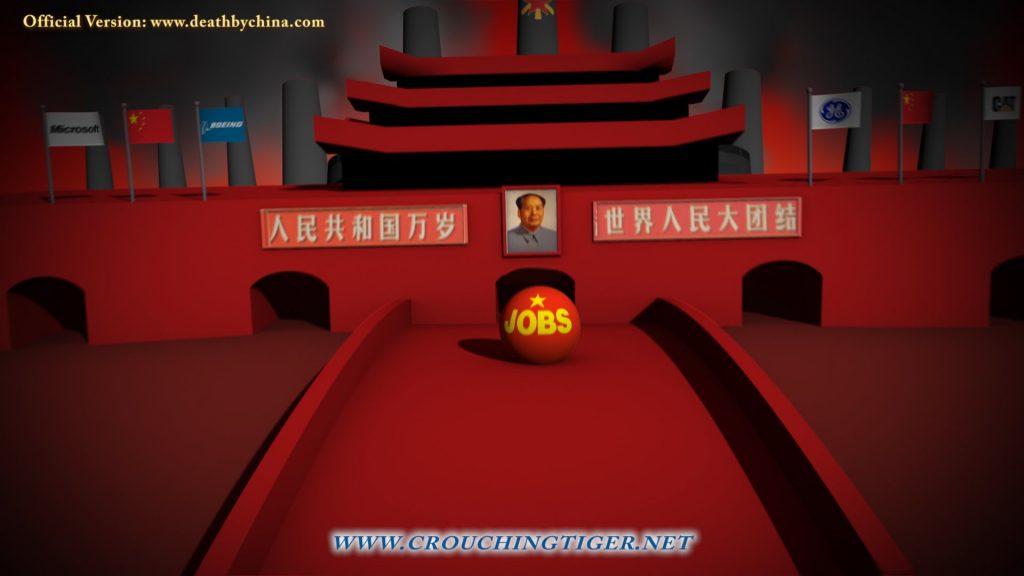In the early 2000s, the United States welcomed China into the fold of the World Trade Organization (WTO) with a prevailing sense of optimism. This move was seen as a symbol of globalization and international cooperation, a testament to the power of free trade to connect nations and foster economic growth. However, the unfolding story of this trade agreement, as depicted in the documentary “Death By China,” reveals a far more intricate narrative—one marked by economic transformations, job losses, and the meteoric rise of Chinese exports within American markets.
The film chronicles a series of events that transpired shortly after China’s entry into the WTO. Almost immediately, China began inundating U.S. markets with exports that were often unfairly subsidized, skewing the competitive landscape and adversely affecting American businesses. Concurrently, major multinational corporations, who had strongly lobbied for the trade agreement, embarked on a significant offshoring of American jobs to China. This dual assault on American employment had far-reaching implications, resulting in the disappearance of millions of jobs, particularly in industries vulnerable to outsourcing.
The consequences of these actions were twofold: corporate profits soared, but millions of American workers were left jobless. Today, the United States finds itself in a precarious position, burdened by a staggering debt of over $3 trillion owed to China, which has emerged as the world’s largest totalitarian nation. “Death By China” does not merely recount the events; it peels back the layers to expose the interconnected web of decisions, actions, and lobbying efforts that contributed to this situation. Moreover, it contends that trade reform with China is not just an option—it is a necessity for the future prosperity of the United States.
The documentary highlights the critical need for a comprehensive reevaluation of the U.S.-China trade relationship. While international trade can be a powerful driver of economic growth and cultural exchange, the specific dynamics between two economic superpowers like the United States and China require nuanced scrutiny. “Death By China” underscores the importance of recalibrating this relationship to ensure that it is fair, balanced, and mutually beneficial.
Furthermore, the film serves as a reminder that economic globalization is not a one-size-fits-all concept. While it can bring about remarkable opportunities, it can also present challenges and disruptions, particularly when it comes to issues like job displacement and the competitive pressures faced by domestic industries.
In conclusion, “Death By China” offers viewers a thought-provoking journey through the complex landscape of international trade. It encourages a deeper examination of the consequences of globalization and the need for careful consideration of trade policies that prioritize the well-being of American workers and industries. This documentary is not just a historical account; it is a call to action, urging policymakers, businesses, and citizens to engage in a meaningful dialogue about the future of U.S.-China trade relations.

